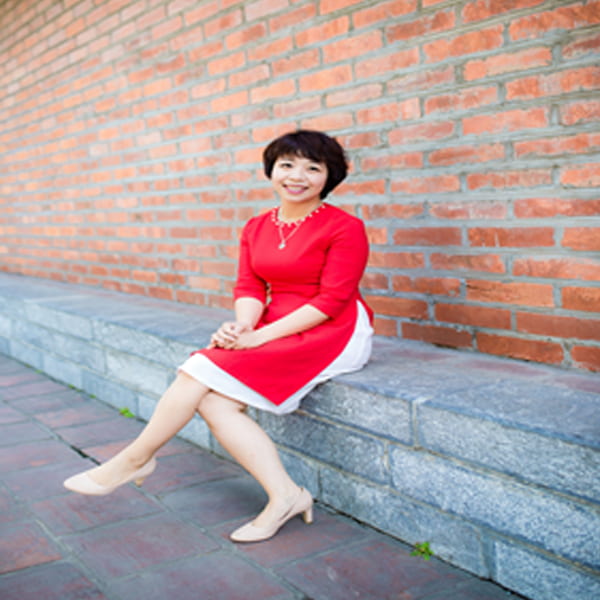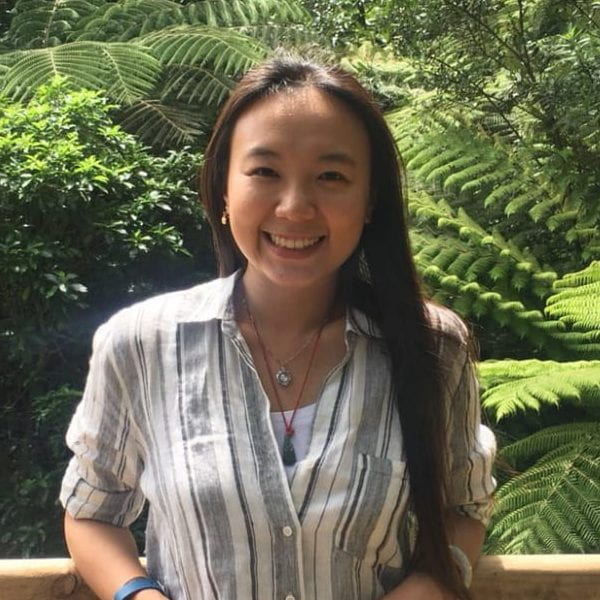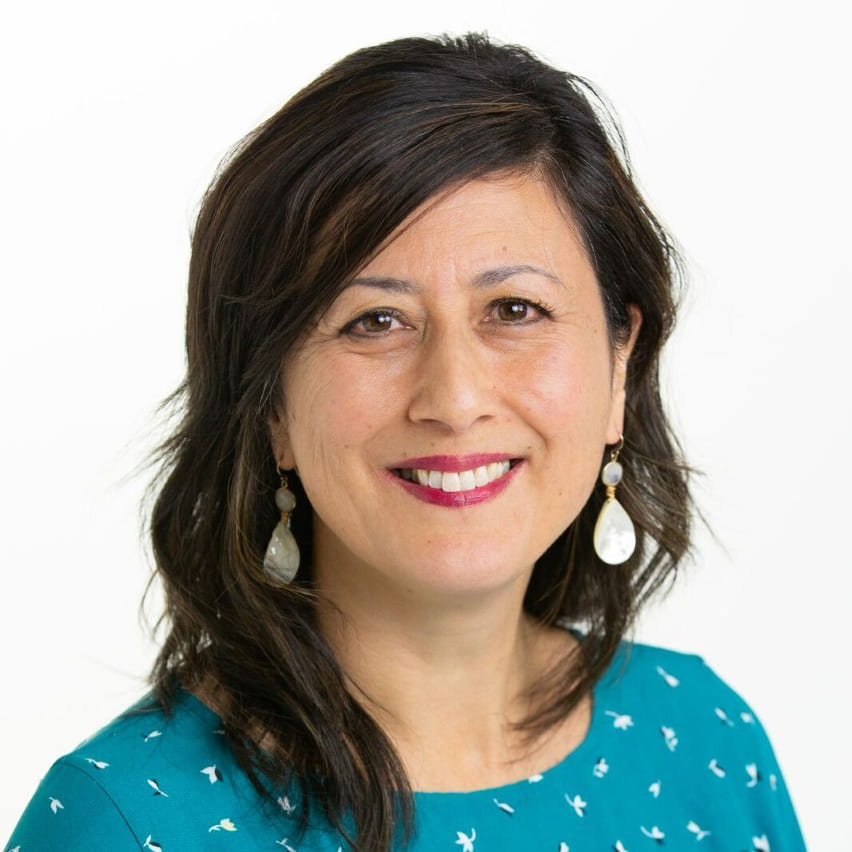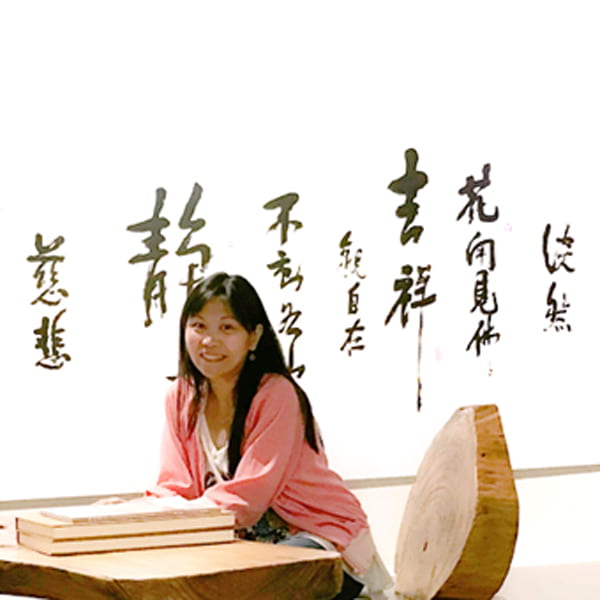Doctoral Researchers
Our recent PhD candidates and graduates and their research below
Ella Fifita Hausia
The Untapped Desires and Entrepreneurial Thinking and Capabilities of NZ-born Tongans
Ella is a New Zealand-born Tongan who was raised and educated in South Auckland. She is a secondary school-trained teacher specialising mainly in Business Studies. Ellais passionate about Pasifika education and employs a student-centred focus. Ella’s doctoral work focuses on her interest in understanding the Tongan concept of loto(heart and mind; desires) as a phenomenon and how this concept, alongside entrepreneurial thinking or capabilities, could alleviate the tensions between students’ and families’ desires in Business education and that of the education system.
The Tongan motto “Mo’unga ki he loto,” which translates to “the strength of a Tongan lies within one’s heart,” resonates not only with Tongans in Tonga but among Tongans worldwide, including those in Aotearoa New Zealand (ANZ). This study will explore loto (desires, hearts, and minds) and entrepreneurial capabilities of Aotearoa New Zealand-born (ANZ-born) Tongan students in secondary school Business Studies. ANZ’s steadily increasing Tongan population has led to evolving identities and cultural practices. These changes impact young ANZ-born Tongans in the classroom as they grapple with their identities, choices, engagement, and success. To effectively pursue this exploration, an understanding of the Kingdom of Tonga’s context and the utilisation of Tongan knowledge, including kinship ties, the four golden pillars of Tongan culture, and concepts like māfana (fervent, enthusiastic, heartfelt) and mālie (pleasant, enjoyable, interesting), are essential. Although focused on Tongan individuals, the study is embedded within the broader context of Pasifika peoples in ANZ, Pasifika education, and Pasifika research. I will use a qualitative case study approach with interpretive and decolonising paradigms. Talanoa with ANZ-born Tongan students and families, semi-structured interviews, and focus groups with teachers will be conducted to explore the Tongan concept of loto and the Tongan notion of entrepreneurial capabilities. The study’s findings will critique the current Curriculum Refresh and NCEA Change Programme for Business Studies regarding who these educational changes genuinely serve. Additionally, the study will offer insights for Business Studies teachers regarding Tongan students’ loto (desires, hearts and minds), entrepreneurial capabilities, and the koloa (wealth) they bring to the classroom.
Helena McAlister
A reimagining of te reo Māori language acquisition: Strengthening the connections between people and language, language and context
Helena McAlister (Ngāti Tūwharetoa, Ngāti Awa, Ngāi Tai, Ngāti Hāmoa) is a doctoral candidate. She currently resides in Christchurch and currently works full-time as a Primary Tutor for the New Zealand Graduate School of Education. Helena’s background in teaching spans across English-medium and Māori-medium school settings. Her research interests include acquisition and use of te reo Māori in Primary Māori-medium and English-medium classrooms and exploration into the potential impact that teachers’ personal narratives have on teaching of te reo Māori in the classroom.
Researchers have been sought to resolve misinterpretations stemming from Te Tiriti o Waitangi for decades with attempts to embody and foster a bicultural education system since the conception of The New Zealand Curriculum in 2007. Socio-cultural theories and socio-linguistic approaches to language learning have led to the emergence of curriculum initiatives in the hope of increasing te reo Māori presence in NZ schools. However, insights into how individual kaiako/teachers connect with te reo Māori on a personal level is space that remains unexplored. This study seeks to explore connections made between teachers’ personal narratives and language use in the classroom, investigating through reflective practices how narratives have aided or hindered regular use of te reo Māori words and phrases in everyday learning contexts.
Helen Zipei Liu
Designing a VR-Based Serious Game for EFL Children to Enhance Intercultural Communicative Competence
Helen has been an EFL teacher for eight years and a public speaking coach for five years. She is captivated by various forms of communication, including painting, poetry, plays, musicals, and stand-up comedy. Her deep passion for intercultural communication stems from her own experiences as an EFL learner. At 19, during her first study abroad experience, she noticed significant challenges in communicating with people from different cultural backgrounds despite her proficiency in English. This experience ignited her commitment to intercultural teaching in EFL classes, leading her to pursue a PhD on enhancing EFL learners’ intercultural communicative competence. Helen believes intercultural communication is a dynamic and lifelong process where individuals learn and grow from collisions with different cultures, which is the new future for humanity.
After World War II and the Cold War, communication needs brought together English as a Foreign Language (EFL) and culture. However, the goal of becoming a native English speaker is unreasonable for EFL learners since native and non-native speakers acquire their language within different cultural contexts. A practical outcome of EFL learning is the development of intercultural communicative competence (ICC). ICC allows learners to understand and navigate the relationships between their cultural values, behaviours, and meanings, and those of their interlocutors. However, theoretical adaptations and practical interventions of ICC for primary EFL learners are still underdeveloped. Intercultural awareness, one of the four goals of EFL teaching in the latest National English Curriculum Standards in China, draws increasing attention. Within this context, this study proposes to design a virtual reality serious game to improve primary EFL learners’ ICC in China.
Hoa Pham
Young Vietnamese children’s identities construction through their personal stories in Vietnam and New Zealand
Children are natural-born storytellers. Inside each child are many stories waiting to be told. Personal stories allow young children to have opportunities to construct and reconstruct themselves in different contexts. Little research has been done in multi-cultural contexts that has captured children’s spontaneous stories in diverse situations (i.e. self-talk, conversations in families and kindergartens). In this doctoral thesis, a multiple case-study design will be used to investigate 4-5-year-old-Vietnamese children’s identities construction through their storytelling processes in Vietnam and New Zealand. The research is driven by socio-cultural perspectives, developed by Bruner, Engel, and Vygotsky. The most crucial thing in research involving children is the lens by which the researcher positions children in project. In this study, a naturalist approach will be used to embark on a holistic adventure to listen to children’s voices in natural environments, capture the beauty of their personal stories, and understand the nature of their identities construction. Observation, informal conversations with young children, and interviews with parents and teachers will be used to gather data. The impact of contexts (i.e., cultural values, families, and early childhood education settings) on Vietnamese children’s identities construction will be explored. Miles, Huberman, and Saldana’s (2014) qualitative-data analysis will be used to analyse data. Findings are anticipated to enrich understanding of Vietnamese children’s identities and their narratives in two countries.
Yingmin Wang
“The unheard voices of children”: A study of young children’s revision in writing
Writing, a powerful way for children to express their diverse voices, remains under-researched in literacy education. Children’s development of revision competencies in writing is crucial for two reasons. First, revision enables children to develop the metacognitive ability to understand tasks, evaluate discrepancies between intended and actual text, and engage in strategic decision making. Second, revision provides opportunities for children to establish authorship and to become writers.
Empirical studies have shown that beginning writers are not inclined to make revisions, and revisions they do make are mechanical changes (e.g., spelling and grammar). In the context of the New Zealand curriculum, students’ ability to revise is recurrently highlighted across all levels. According to the curriculum on revision, writers are expected to “add or delete details and comments, showing some selectivity in the process” (Ministry of Education, 2007, p.8) by level 2 (Year 3 to Year 4).
The goal of this study is to explore 7- and 8-year-old children’s (Year 3 and 4) revision development with an ethnographic approach to observe, document, and engage as an “adult friend” (Dyson & Genishi, 2005) with four individual children on their composition in an Auckland primary school for three terms. The study draws on multiple sources of data, including inclassroom observations of participating children; interviews with participating children, teachers and parents; and analysis of children’s writing drafts and texts over time.
Amanda White
Talking matters but who is listening? Story-time interactions between parents, teachers and toddlers in a diverse community
The aim of Amanda’s doctoral research is to explore the multimodal nature of story interactions between toddlers and their families, teachers and peers in a culturally and linguistically diverse community of Aotearoa-New Zealand. This research draws on sociocultural and social semiotic theoretical perspectives and employs a qualitative case-study research design.
This research is critical because adult-child interactions are known to be critical to early communication and language development. Sociocultural theories place emphasis on the importance of responsive, nurturing relationships between children and their adult caregivers for children’s learning and well-being, and the central role that cultural and historical resources play in mediating interpersonal relationships. Relatively little local research, however, has explored the nature of early adult-child interactions within cultural and social contexts of Aotearoa-New Zealand.
The findings of this study will make an original contribution to our understanding of how parents and teachers interact with their toddlers in diverse communities. In addition, it will shed light on ways to encourage partnership and dialogue around ways to nurture early communication development within everyday contexts involving shared story interactions
Alison M-C Li
Children’s everyday storying: A post-intentional phenomenological study in inclusive early childhood education
In this study, I explore the phenomenon of storying to address the overarching research question: What is the nature of children’s everyday storying in inclusive ECE? The nature of storying was examined through the natural intra-actions of people and environments in their day-to-day play, conversations, and visual and embodied creations. Post-intentional phenomenology was adopted as a philosophical perspective and methodological approach. Everyday storying experiences of 64 children aged 4–5 in four inclusive early childhood environments in the contexts of Aotearoa New Zealand and Hong Kong were explored. The two geographical contexts are where my sense of belonging as a practitioner, inquirer, and learner of early childhood education are grounded. Children’s everyday stories (N=297)—the happenings relative to their doing, saying, experiencing, imagining, and creating in their daily lives—were identified from multiple sources. Observations, video recordings, and playful interactions were the major sources, supplemented with photographs of storying artefacts and environments. Thirteen teachers and 15 parents shared their views on storying in informal conversations. These multiple sources served as phenomenology materials.
Randima Rajapaksha
Children’s agency for learning in early childhood education settings
Since the 1980s, the sociology of childhood has been interested in investigating children as social actors and the concept of agency. Agency, generally understood as children’s capacity to act on their own, is a dominant concept in many early childhood education (ECE) curricula, including Te Whāriki, the ECE curriculum in Aotearoa, New Zealand. This concept plays a vital role to understand children’s worlds. Although a wide array of empirical studies has focused on the use of agency in their co-construciton of lives, an emphasis on the role of agency in children’s learning is limited. Since the early years lay a foundaiton for lifetime learning, making sense of how children act as agents for understanding the world around them is significant.
This interpretivist, qualitative study draws on an ethnographic approach to invecstigate how children exercise agency-for-learning in ECE settings and how teachers perceive their role in agency-for-learning. Data are generated from video recordings, informal conversations with children, photographs, interviews with parents and teachers, and document in a kindergaren and an education and care setting over 10 weeks period.
The findings of the study contribute to understand three primary forms of agency-for-learning, which are distinctive, multimodal and benefit learning. The thesis argue partnership between teachers and children is critical to exercise agency-for-learning and benefit children’s understanding of the world within in a free play context. Thsi thesis opens innovative insights and understandings into the notion of agency-for-learning and associated pedagogical approaches that hold important implications both for teachers and for futher research that could tranform children’s agency.
Children are natural-born storytellers. Inside each child are many stories waiting to be told. Personal stories allow young children to have opportunities to construct and reconstruct themselves in different contexts. Little research has been done in multi-cultural contexts that has captured children’s spontaneous stories in diverse situations (i.e. self-talk, conversations in families and kindergartens). In this doctoral thesis, a multiple case-study design will be used to investigate 4-5-year-old-Vietnamese children’s identities construction through their storytelling processes in Vietnam and New Zealand. The research is driven by socio-cultural perspectives, developed by Bruner, Engel, and Vygotsky. The most crucial thing in research involving children is the lens by which the researcher positions children in project. In this study, a naturalist approach will be used to embark on a holistic adventure to listen to children’s voices in natural environments, capture the beauty of their personal stories, and understand the nature of their identities construction. Observation, informal conversations with young children, and interviews with parents and teachers will be used to gather data. The impact of contexts (i.e., cultural values, families, and early childhood education settings) on Vietnamese children’s identities construction will be explored. Miles, Huberman, and Saldana’s (2014) qualitative-data analysis will be used to analyse data. Findings are anticipated to enrich understanding of Vietnamese children’s identities and their narratives in two countries.








